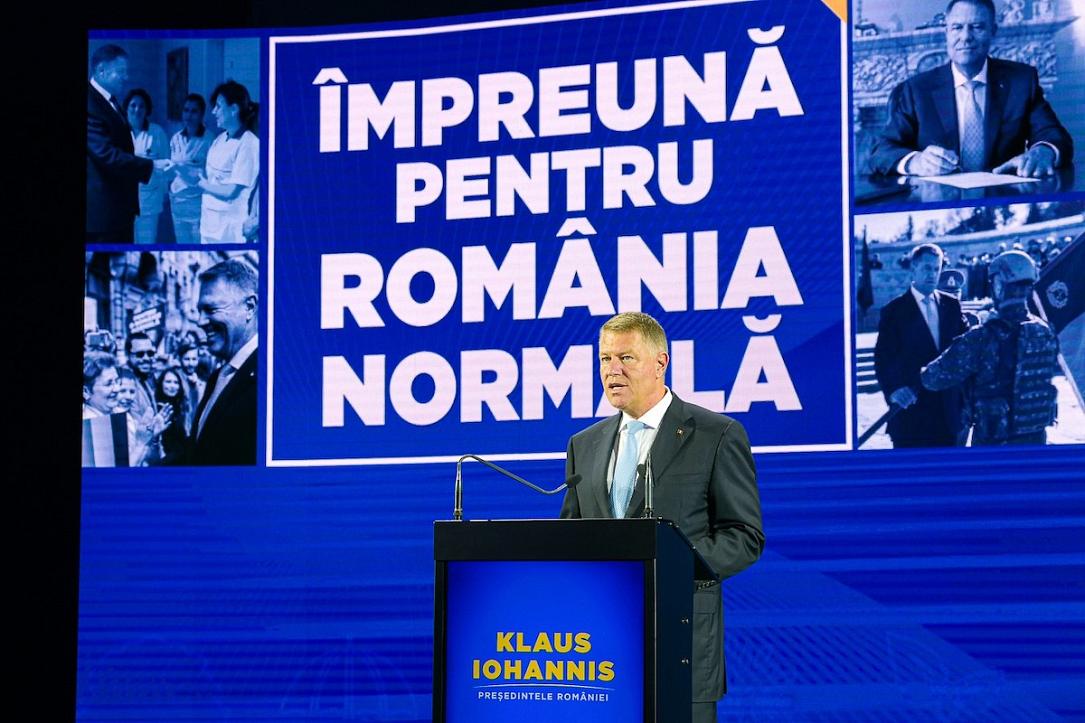Romania presidential elections 2019: Who is Klaus Iohannis, the president who hopes to win another term?



A former physics teacher, Klaus Iohannis started his political career in 1990 and, 24 years later, in 2014, he was elected president of Romania. He now wants to remain in this position for another five years and starts as a favorite against former prime minister Viorica Dancila, the leader of the Social Democratic Party (PSD). In the first round of the presidential elections, Iohannis got 37.82% of votes while Dancila had a score of 22.26%. Moreover, USR leader Dan Barna, who was third with over 14% of the votes, endorsed Iohannis for the second round.
Klaus Iohannis, 60, is a Romanian politician of German origins. In fact, he is the country’s first president to come from an ethnic minority – the Transylvanian Saxons. He was born in Sibiu and is married to Carmen Iohannis, a high school English teacher.
Iohannis attended the German school and the „Samuel von Brukenthal” high school in Sibiu and then, in 1978, he started his studies at the Faculty of Physics of the Babeș-Bolyai University in Cluj-Napoca. He then worked as a physics teacher at various schools in the Sibiu surroundings, including at the high school he had graduated, and, in the late ‘90s, he became General School Inspector in Sibiu.
Klaus Iohannis started his political career in 1990, the year after the December 1989 Romanian Revolution that put an end to the communist rule in the country. He joined the Democratic Forum of Germans in Romania (FDGR), which he later led for more than 10 years. In 2000, FDGR chose Iohannis to be its candidate in the elections for mayor of Sibiu, which turned out to be a wise decision, as he won the electoral race with over 70% of the votes. In fact, Klaus Iohannis won a total of four mandates as mayor of Sibiu, being re-elected in 2004, 2008, and 2012. He was often praised for changing the city for the better, especially for turning it into a popular tourist destination. In 2007, during Iohannis’ second mandate as mayor of Sibiu, the city was chosen „European Capital of Culture”, alongside Luxembourg.
He decided to go one step forward in 2009 when a large parliamentary coalition, which included the Social Democratic Party (PSD) and the National Liberal Party (PNL), nominated him for prime minister of Romania. Things didn’t go as planned, as the president at that time, Traian Basescu, refused to appoint him, but Iohannis started to be known nationwide. He joined the National Liberal Party (PNL) in February 2013, and not long after he was elected the party's first vice-president. The following year, he became party leader and was nominated to run for president of Romania. PNL then made an alliance with the Liberal Democratic Party (PDL), Basescu's former party, to support Iohannis’ presidential bid.
During the 2014 electoral campaign, the media started reporting about the real estate properties owned by Klaus Iohannis, some accusing him of having used false documents to get a house in Sibiu. When a journalist asked him how come other teachers haven’t managed to buy six houses from a teacher’s salary, Iohannis famously replied “Bad luck” (Ghinion), a phrase that is still brought up today in attacks against him. In November 2015, he lost one of the houses in court.
Klaus Iohannis won the presidential elections on November 16, 2014, after a surprising comeback against former prime minister Victor Ponta, who had won the first round. Iohannis got about 54.5% of the votes, compared to 45.5% for Ponta, with the support of urban voters especially from the Transylvania region.
During his first term as president of Romania, he positioned himself as a pro-European politician and pleaded for a sustained fight against corruption. Since December 2016, when the Social Democrats won the parliamentary elections, he joined the anti-PSD side, condemning the controversial policies adopted by the PSD Government and MPs, especially those targeting the justice system. He even initiated a referendum on justice in May 2019, which he said was aimed at stopping the ruling coalition’s serial changes to the justice laws and criminal codes. The referendum passed the validation threshold and got positive answers from the voters.
However, things weren’t all good for Iohannis during these last five years. For example, his decision to name three PSD prime ministers in the last three years was highly criticized by many, and even made some people claim that he actually contributed to keeping PSD in power, as a political move to increase his chances of winning another term as president of Romania. Some also accused him of not being an active president, and of failing to have a real dialogue with the citizens.
Klaus Iohannis, with the support of PNL, now wants to be the president of Romania for another five years, and he is the candidate with the highest chances of winning the presidential elections. His campaign motto is Pentru o Romanie Normala (For a Normal Romania). He promises to continue the fight for strengthening the rule of law and the democracy in the country, to promote education, to keep Romania on its European path, and to restore confidence in public institutions.
So far, almost his entire campaign focused on attacks against the PSD and its leader Viorica Dancila, which Iohannis accused of having governed against the Romanians and of “systematically challenging the democratic values and principles.” He also decided to say no to a political debate with counter-candidate Dancila in the second round of the presidential elections, arguing that the former prime minister “represents the worst in [Romanian] politics in recent years.” He organized a debate with selected journalists and political analysts instead while Viorica Dancila held a press conference at approximately the same time.
You may also want to read: President: Without me, the rule of law in Romania would have been broken
newsroom@romania-insider.com
(Photo source: Facebook/Klaus Iohannis)